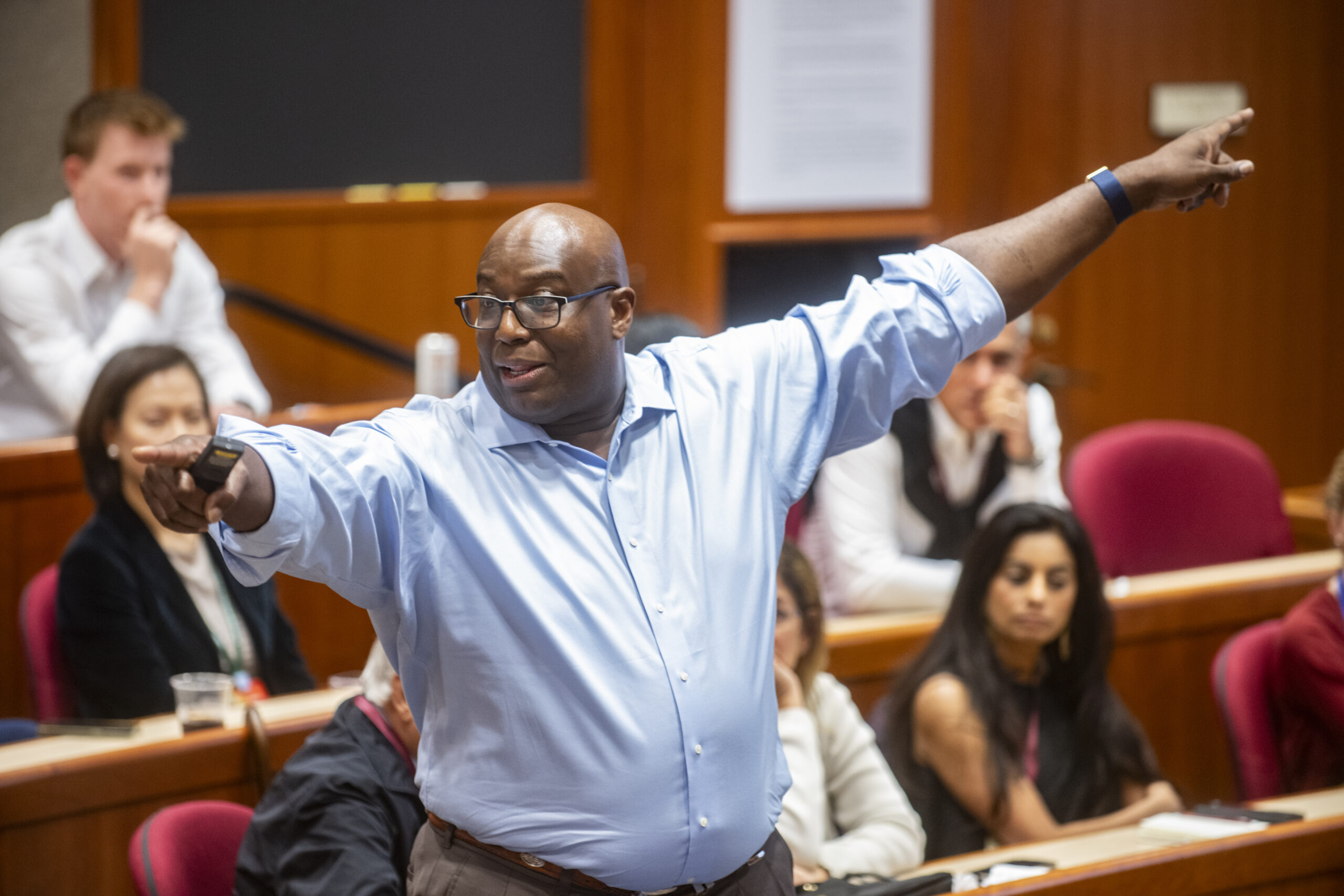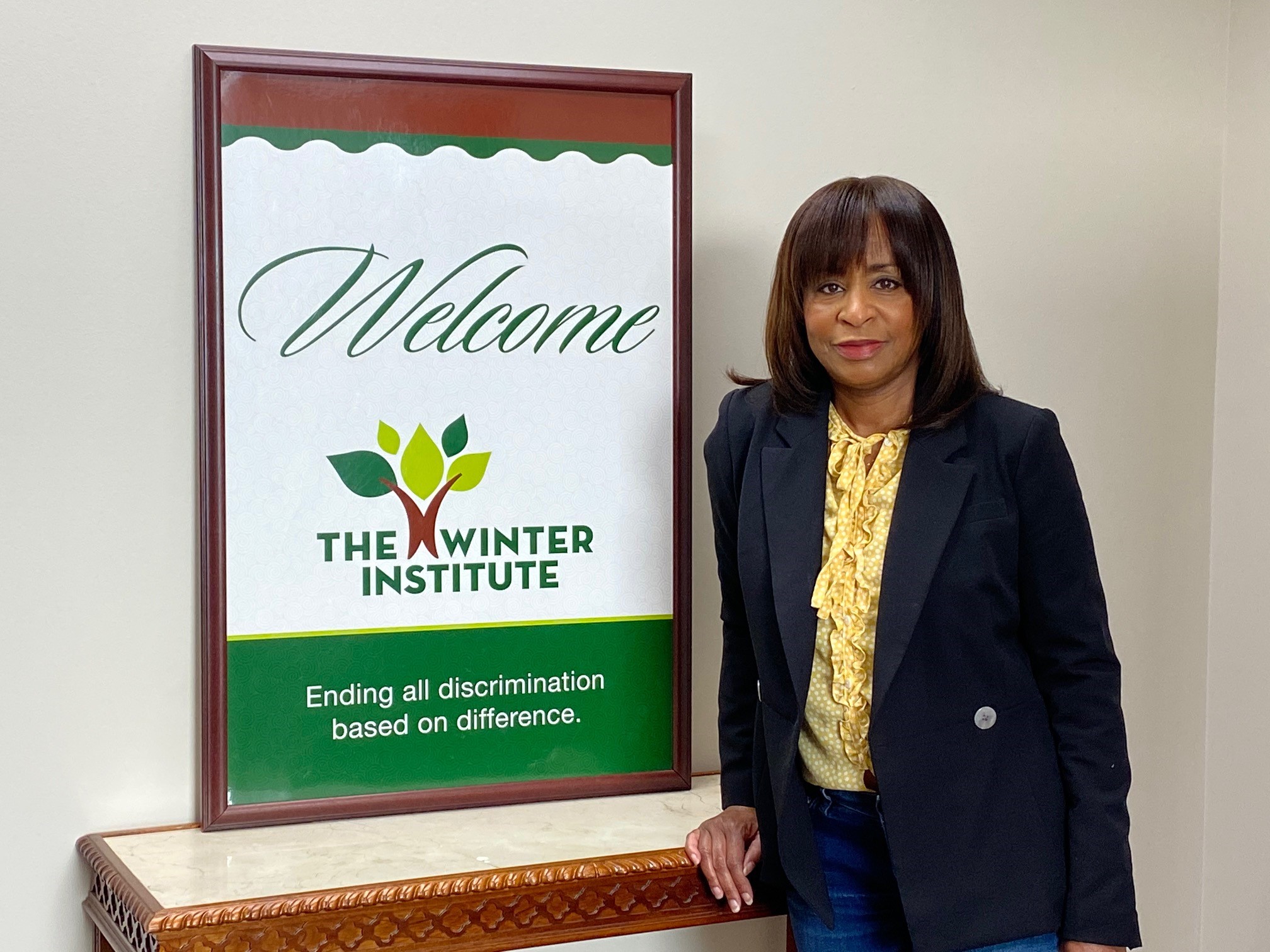

This post is part of our “Leadership in Challenging Times” blog series, which highlights the inspiring work of the HBS community in addressing the health and economic consequences of COVID-19, alongside the fight for racial equity and an especially polarized political climate. In this post, Portia Ballard Espy discusses her work as Executive Director of the William Winter Institute for Racial Reconciliation. Portia participated in the Performance Measurement for Effective Management of Nonprofit Organizations (PMNO) Executive Education Program in June 2020, which is now titled Driving Nonprofit Performance and Innovation.
Tell us about your work.
I am the Executive Director of the William Winter Institute for Racial Reconciliation, located in Jackson, Mississippi. Initially founded in 1999 at the University of Mississippi, the Winter Institute transitioned from the University in 2018. It became an independent non-profit in 2019. We work with organizations, communities, and academia (K-12 and higher education) to end and transcend division and discrimination based on differences. Our work is conducted nationally via three programmatic pillars: Community and Capacity-Building, Youth Engagement, and Policy and Civic Engagement. As the organization's Executive Director, I serve as the key management leader with oversight responsibility for administration, programs, fundraising, board relations, and strategic planning.
How has your organization and your role responded to this year's challenges?
Our work is done exclusively via live convenings, something we've determined is essential when engaging diverse groups in relationship building and shared learning. As the news of COVID-19 and possible restrictions began to surface in 2020, I asked my program leaders to develop strategies to continue the work should we be forced to work remotely. Shortly after our scenario planning session, shutdowns were announced, and we took our entire operation virtual. We've been working in this virtual mode since March 2020 and have become comfortable using technology to achieve similar results as were realized during our in-person convening. During this time, we have launched a certificate program, held our annual nine-day residential Summer Youth Institute virtually, and launched a fellowship program focused on mitigating issues leading to outmigration, all while keeping our staff complement steady.
As racial justice and gender inequity issues gained greater attention, we received significantly more requests from organizations seeking to establish more equitable cultures inside and outside the workplace. Converting our work to a virtual format has allowed our small team to impact many who've sought our support. The virtual format we've employed has allowed us to work well beyond our state’s/region's borders, which has been one of the unintended but positive outcomes. I'm very proud of the resiliency displayed by our team in making the shift so quickly and maintaining the integrity of our programs.
What lessons have you drawn upon from your Executive Education experience?
I was privileged to participate in the Performance Measurement for Effective Management of Nonprofit Organizations (PMNO) program, where something resonated with me: effective management requires results and procedural accountability. I've always been conscious of not letting the event itself dictate success for us or our clients. Our mutual success depends upon the outcomes, intended and unintended. Working in a purely virtual setting has placed even greater importance on this for my team because our work must shift mindsets and behaviors. We've benefitted by collaborating with a professional program evaluator who has helped create the proper survey instruments needed to monitor our work's progress against intended outcomes. It has now become commonplace for us when designing programs for clients that we automatically create the survey instruments necessary to monitor our work and the benefit to our client. This critical adjustment has allowed us to offer only what we know works well to achieve the most significant impact.
I also have a small cohort of colleagues/friends from the PMNO program. We meet virtually every other month to encourage one another to complete our stated goals (developed before completing the program), share best practices/resources/tools, and have a laugh or two. These personal and professional connections have been invaluable.
What has inspired you to keep going during these difficult months?
It's essential to have a community standing behind me as well as one that needs me. Both have offered inspiration to me during these times. I have a solid group of colleagues and mentors I call upon regularly who motivate me in my work and serve as a sounding board to help me work through challenging issues. They are also quick to share resources and best practices, as well as celebrate my successes. This beloved community challenges me and drives me toward my professional best.
I'm most driven by the need to intervene where there are continuing issues of inequity and racism that require our support and intervention. It inspires me to bring divided communities together to achieve better economic, educational, or other outcomes. It motivates me when people of different races and backgrounds learn to see humanity in one another. I'm grateful to be involved in this vital work.
How can someone interested in this area get involved or learn more?
Interested individuals should visit our social media channels (Twitter, Facebook) for more information about our work and upcoming events. We recently launched a certificate program designed to equip individuals with the tools needed to build bridges that lead to more inclusive and vibrant communities.